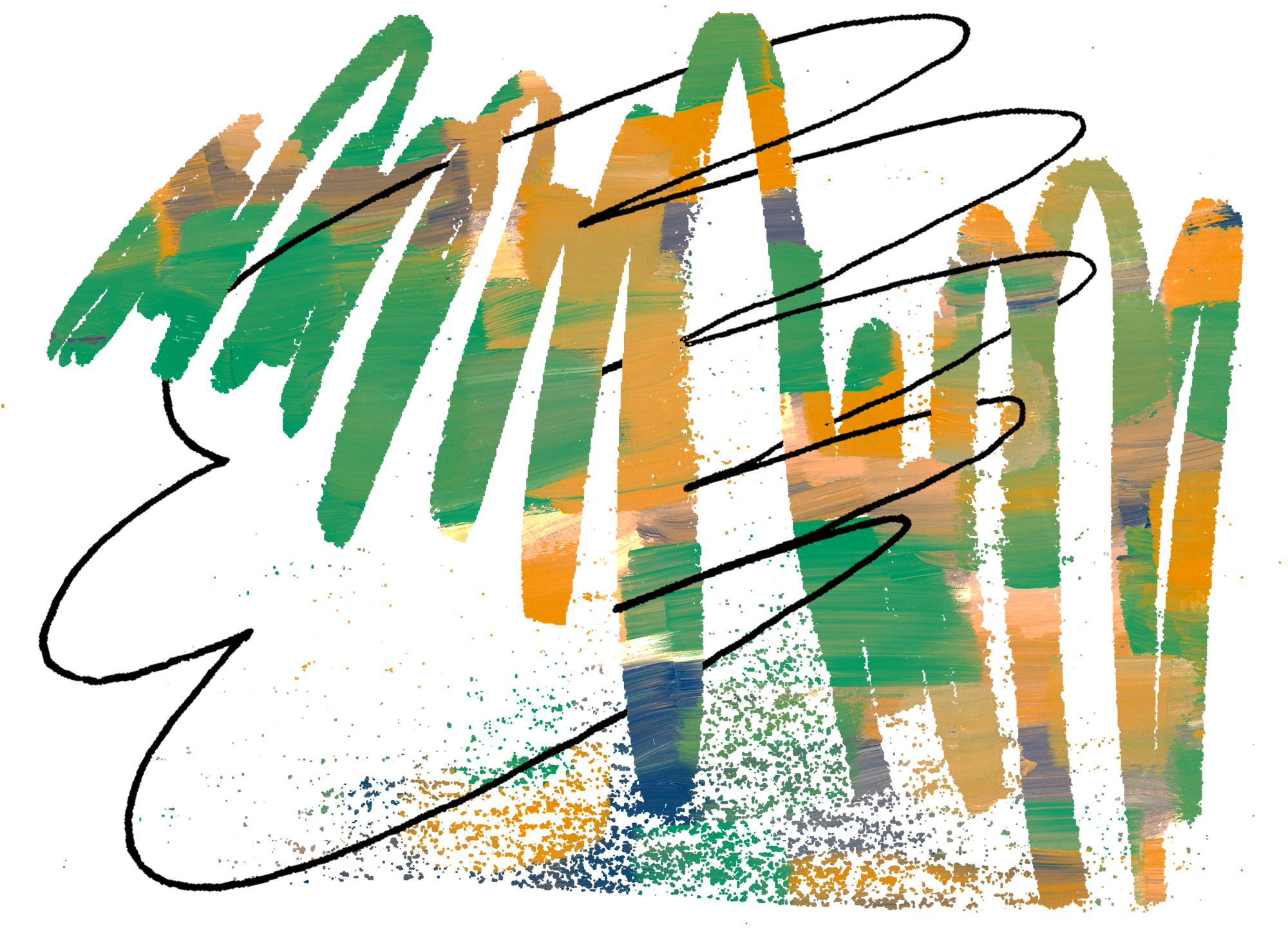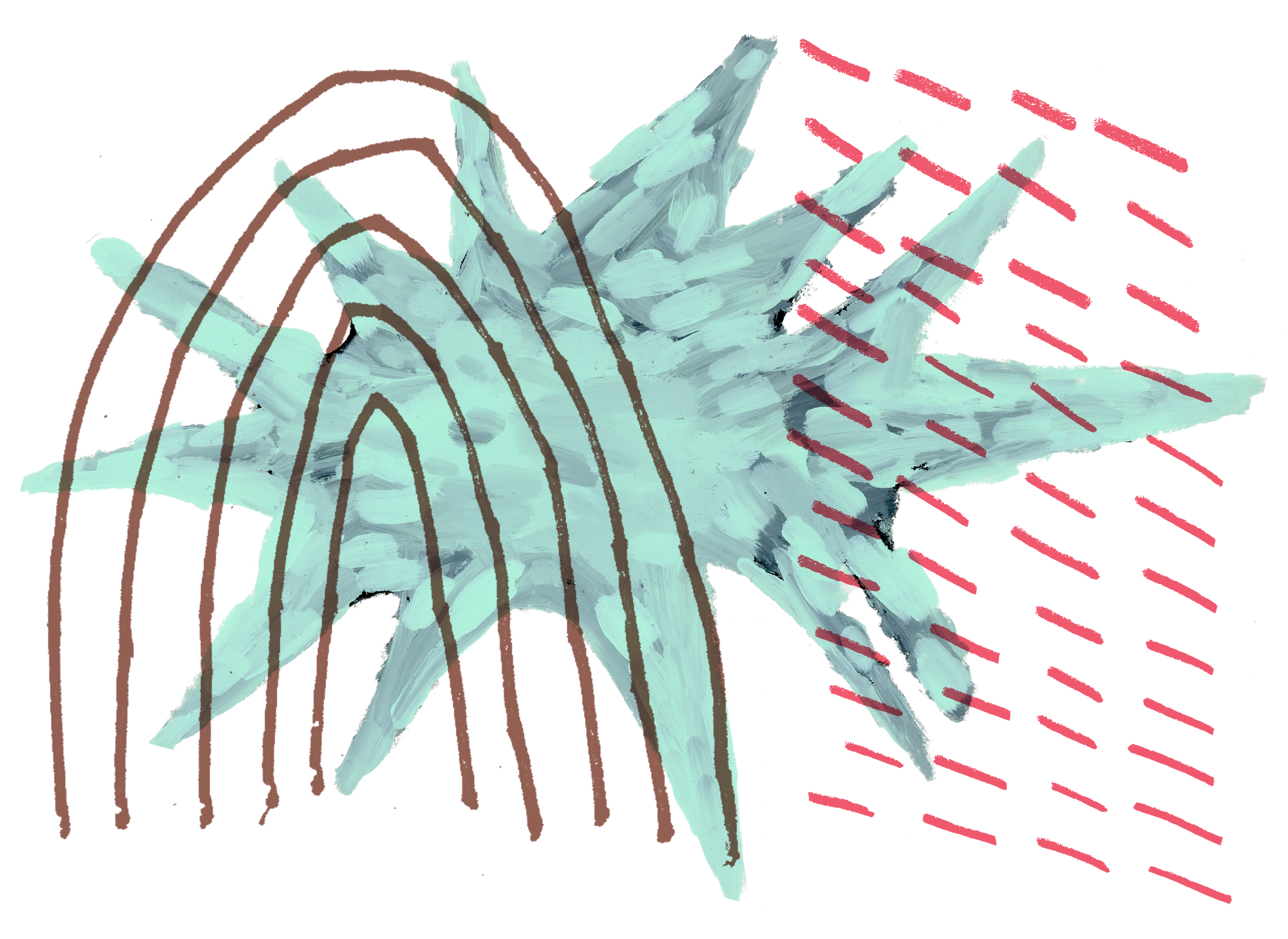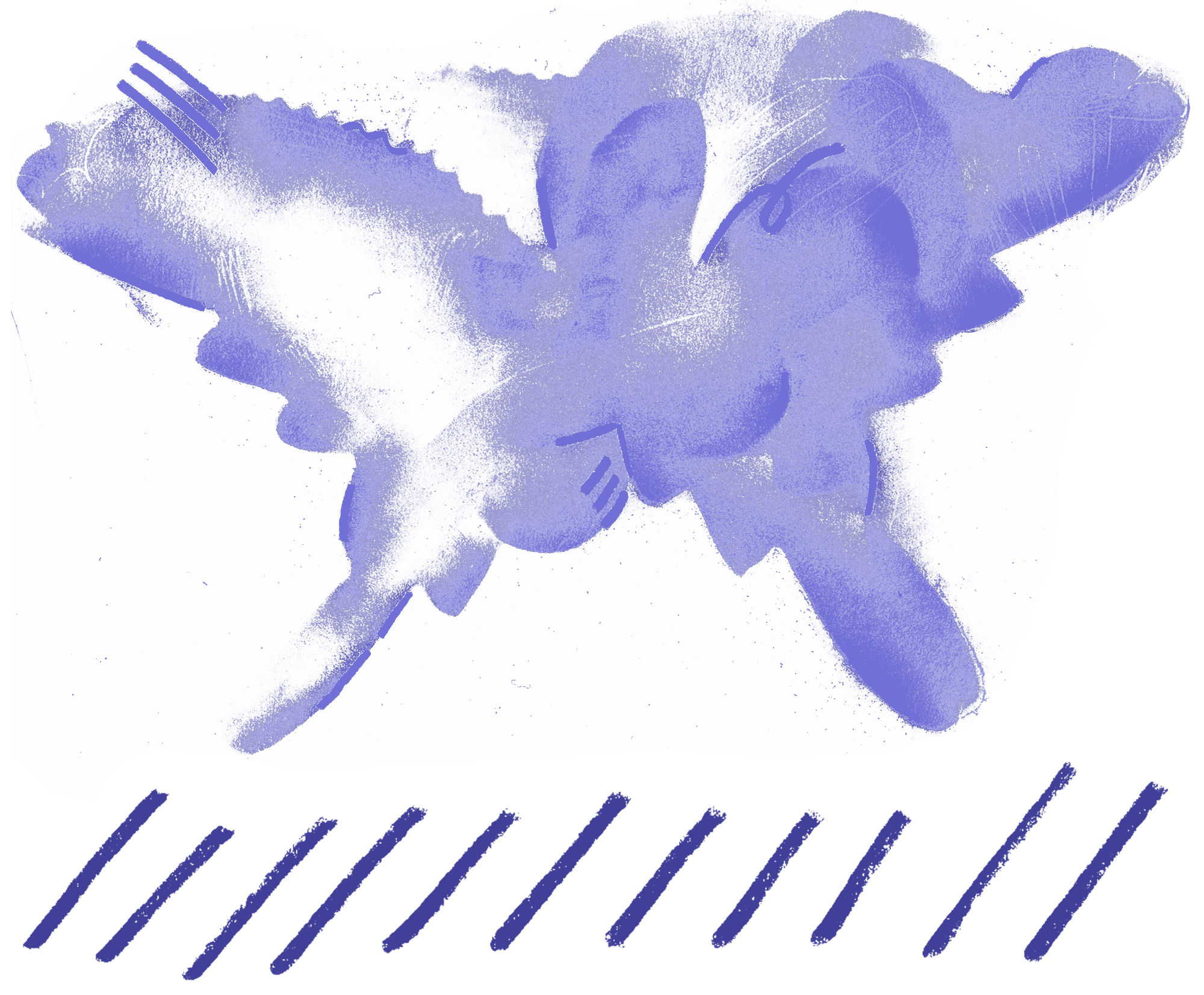How to write a poem
Introduction
“Without poetry, we lose our way.”
— Joy Harjo, U.S. Poet Laureate & Academy of American Poets Chancellor
I’ve been writing poetry, in some capacity, since I was a little kid. I am drawn to the language of poetry as a specific way of looking at the world, and how it operates by its own sometimes inscrutable logic. It has always felt to me like the best and most natural vehicle for talking about complicated feelings and making observations, and I enjoy it because it feels weird and good and true. It might even be the one thing in my life that allows me to access something powerfully mystical. However, the things that make me love poetry are generally the very same things that make it hard to explain, seemingly impossible to teach, and more often than not, cause people’s eyes to glaze over when I mention it.
When I tell people I am a writer, it’s always interesting to see them cycle through what that means in real time. Oh, you write novels? Nope. Aww, so you’re a journalist? Yes, but… A memoirist? A technical writer? A copywriter? It’s only after every other option has fluttered across their mind that “poet” eventually becomes an option. I am no longer offended by these interactions, but I am also cognizant of how much I have internalized the weird vibes. For some reason, I would never open with “Hi, I am a poet” because it just sounds too pretentious—but why is that? If poetry is one of humankind’s oldest and most vaunted art forms, why does it currently occupy such a weird, prickly spot in our cultural consciousness? And why should anyone, myself included, ever think of it as an embarrassing pursuit? Or an impossible one?
There are arguably a million complicated answers to these questions, but in the interest of brevity and in an effort to be helpful, I’ll just say this: a lot of people have weird ideas about what poetry actually is or what it can be, and because of this, poetry has been made to feel inaccessible to them. If you don’t tend to read poetry, then why would you write it? And if the idea of writing a poem seems about as plausible as writing in a language you don’t yet speak, then I hope that this little guide can function as a gentle introduction into both the reading and writing of poems. It should be an experience that feels like slipping into a warm bath and less like, say, taking a time machine back to your high school English class and realizing you don’t understand the assignment. Poetry is the opposite of that.
— T. Cole Rachel, poet and Senior Editor of TCI
Poetry. What is it? Why do it? And who cares?
What is poetry? Like, what is it really? As someone who has read, studied, and taught poetry for the better part of their adult life, my answer to this question is a combination of “who knows?” with a healthy side dish of “it doesn’t matter.” The literal definition of poetry, at least according to Merriam-Webster, is as follows:
[Poetry is] writing that formulates a concentrated imaginative awareness of experience in language chosen and arranged to create a specific emotional response through meaning, sound, and rhythm.
While there is certainly a historical, literary precedent for what poetry is, it remains slippery in both form and function. It also generally occupies a rather amorphous space in our consciousness. As poetry has evolved into an entity that can take the shape of almost anything—from the deadpan literal to the purely abstract—it’s not surprising that we tend to project our own feelings onto it.
In his excellent book, Why Poetry, the poet Matthew Zapruder makes the case that reading poetry can help us lead more purposeful, empathetic lives. His book provides a general demystification of what it means to read and write poems, and a thoughtful way to dispel some of the inadequacy that readers often feel when confronted with poetry. Zapruder writes:
“I have a confession to make: I don’t really understand poetry.” For over twenty-five years, I have heard this said, over and over in slightly different ways, by friends, family, colleagues, strangers I met in bars and at dinner parties, on planes—so many people, practically everyone who found out I was a poet. Clearly, there is something about poetry that rattles and mystifies people, that puts them off, that makes them feel as if there is something wrong. Maybe the problem is with them as readers. Maybe they don’t enough or haven’t studied enough or weren’t paying attention in school. Or maybe the problem is with poetry itself. Why don’t poets just say what they mean? Why do they make it so hard?
What Zapruder suggests in his book is something that I’ve often experienced with my own students. People often have an aversion to poetry as a result of being made to read things they didn’t like or understand, usually at a time in their life when they were the least prepared to absorb it. Because of this, poetry itself remains fixed in their minds as some kind of inscrutable hard work—a slog, the literary equivalent of a puzzle with a thousand tiny pieces that are all essentially the same color. The experience of reading poetry, aside from the occasional New Yorker piece, remains fixed somewhere in the cobwebby backs of our brains along with memories of being forced to read The Canterbury Tales or having to produce a clunky sonnet or replicate iambic pentameter for junior high English without actually understanding what it was or why you were doing it.
So what is the cure for this? Re-wiring the way we think about poetry and the way we read it, and understanding that it’s an art form that contains infinite multitudes. For a lot of people, their misunderstanding of poetry is akin to hating ice cream your whole life because you only tasted one bad flavor as a teenager and you thought it was hard to eat. Awakening your sensibilities as a reader and writer of poetry is really all about finding the right kind of poetry for you, and knowing that whatever your personal tastes happen to be, and whatever your needs happen to be as a reader and a creature with lots of feelings, there is a particular flavor of poetry in existence that will speak directly to you.

Don’t try and learn. Just read.
When I made the decision in the mid ‘90s to forego any kind of practical future and, instead, go get an MFA in poetry, I have the distinct memory of my grandmother asking, “Why are you doing this?” which was followed by, “Can you even teach someone to write poetry? Isn’t that something you either know how to do or you don’t?” In some ways, she was right—poetry is a weird, complicated thing to try and teach another person how to make. Poetry has many forms and many rules, all of which are changeable, mutable, and often meaningless. Emily Dickinson, Robert Frost, Hanif Abdurraqib, John Keats, Claudia Rankine, Wallace Stevens, Elizabeth Bishop, Nikki Giovanni, John Ashberry, Sylvia Plath, Morgan Parker, Ada Limon—all poets who sound so different in tone and voice and style that it seems crazy to lump them all together.
And as for poetry itself? This compact little narrative? A poem. This haiku about grass? A poem, obviously. This scrabble of nonsense words on a page? Also poetry. This smear of ink? Poetry. This feeling, this idea, this gesture, this mood? Yes. All poetry. The idea of teaching someone how to make a thing whose very nature continues to evolve, change, and grow increasingly slippery within the cultural lexicon seems impossible… and yet, why not try? Why not write some poems?
The best way to try and understand poetry—and ultimately to write it—is simply by reading it and letting the form and logic of it gradually seep into your animal brain. Every reader is, of course, different, and you can’t always predict what kind of poems are going to be speaking your language. That’s why it’s important to peruse lots of different kinds of poems, which makes it easy to find things that are not only accessible, but also speak to your own experience as a human. Unless perhaps you are a fledgling English major or a writer of poetry just entering an MFA program (in which case, I feel for you), approaching poetry from a serious literary angle might largely be a waste of time and energy. Instead, why not approach poetry like a hungry person walking through a grocery store, throwing anything and everything into your cart that looks like it might taste good?
To that end, here are a few spots to gently lower yourself down into a poetry pool and help you find something that keeps you afloat:
-
Poets.org // One of the best resources for poetry and poets on the internet, this is the official site of the Academy of American Poets. In addition to being able to browse different types of poetry and search for individual poets, this is a great place to find out about poetry-related events in your area. Here you can also sign up for “Poem-A-Day,” which will email you a poem, along with links to that poet’s work, every day. I’ve subscribed to it for years and it’s the easiest way to discover new poets and poems.
-
Poetry Foundation // This site is particularly useful if you are in the mood to dive headfirst into a poetry hole. The site offers a “Poem of the Day” but also has lots of nicely curated sections where you can browse poems by theme, style, and subject. This is also the place to subscribe to Poetry magazine, which has been publishing some of the best and most diverse poetry in the world since it was founded back in 1912. The magazine is not only a fertile discovery zone, you can also get it delivered in a variety digital formats, which means you can even read it on your stupid phone.
-
Poetry anthologies // Anthology books can be one of the best places to turn on and tune in to exactly what sorts of poetry speaks to you. There are, of course, a million “classic” anthologies of poetry that showcase all the literary legends and luminaries, but if those feel too much like just revisiting the stuff you read in high school or college, then perhaps go a little more niche. Most good bookstores still have a poetry section (though they seem to be shrinking) and within those you can find an abundance of poetry anthologies specifically curated to speak to and for a variety of voices. If you are looking for something a little more general and panoramic, I always recommend the “Best American Poetry” series, which is guest edited by a different poet every year and always provides a nice lay of the land in terms of what is happening across the world of poetry (American poetry, at least).
-
Live readings // One of the best ways to really experience poetry is to go hear people read it. The kinds of poetry events happening at any given time in any given city are typically as varied as poetry itself tends to be. While I myself have definitely sat through some clunker poetry readings in my time, I’ve also experienced poetry in its most transcendent form when going to hear it read aloud by the poets themselves. I also like to periodically search out my favorite poets on YouTube to try and find footage of them reading their own work, an exercise that can lead you to wild gems like this one—Anne Sexton reading “Her Kind” back in 1966.

Get started.
Once you’ve spent a little time perusing some poems and getting a sense of what you like and what speaks to you, the best way to start writing poems is to simply…write a poem. If this seems easier said than done, or if the horror of the blank page feels too overwhelming, just give yourself a little nudge. Write about where you are and how you feel at this very moment and look at the size and shape of poems that you love, considering—How can I do this too? How can I make this about me?
For the past five years I’ve been teaching a recurring poetry workshop here in New York City called “Poetry & Photography.” The class originated via the Camera Club of NY and was first created as an offering for photographers who wanted to experiment with writing poetry as a way to respond and reflect on their own visual work. Eventually the class opened up to non-photographers as well, but I found that the concept of the class—and the exercises—still rang very true for everyone. We all have complicated relationships with images. And since we all carry around a smartphone that we use almost incessantly to document ourselves and our surroundings, it’s easy to use existing images as a jumping-off point for writing poems.
As I mentioned before, I’m not sure you can really teach someone how to write a good poem, but my technique has always been to simply give my students a variety of poems to look at every week and then to set them loose with a prompt. I’ve always found that when people are writing about the reality of their own lives and filling their poems with lots of specific sensory details—as opposed to, say, writing about abstract ideas like “love”—the work tends to be vivid and interesting. With that in mind, here are three photo-related prompts to get you going…
Prompt 1: “RESPONSE”
Write a poem that begins with a description of a photograph you have in your possession. Delve into the memories evoked by the photograph, or reveal what personal significance the photograph has for you.
For inspiration, read Natasha Trethewey’s “History Lesson.”
Prompt 2: “MOMENT”
Using one of your own photographs, go back and try to describe what is happening with you, the photographer, at the moment the image was taken. What possessed you to take the photo? What was it about that moment specifically that needed to be documented, and why was that moment so telling? The poem should be a companion to the photo itself—a kind of poetic explanation of the photo’s creation.
For inspiration, read:
- “A Tenth Anniversary Photograph, 1952” by Miller Williams
- “Photograph from September 11” by Wisława Szymborska
- “Photograph of a Gathering of People Waving” by Clarence Major
- “Photo of a Man on Sunset Drive: 1914, 2008” by Richard Blanco
Prompt 3: “LANDSCAPE”
Using one of your own photographs, write a poem in which you explore a particular landscape. Focus on the description of the place. Rather than adding a lot of commentary on the subject, focus solely on the physical details of the environment and create an apt description of the image for someone who hasn’t actually seen your photo.
For inspiration, read:
- “Still Life in Landscape” by Sharon Olds
- “What It Looks Like To Us and the Words We Use” by Ada Limón
- “Landscape, Dense with Trees” by Ellen Bryant Voigt
- “Bird” by Dorianne Laux
Don’t be afraid to experiment with forms.
Sonnets, Haikus, Sestinas, Odes, Elegies—these are all poetic forms that are beautiful and important and that, to be honest, you never need to think about (unless you want to!). So many of my poetry students come to class thinking that they’ll be expected to write in one of these forms, or that the only “real” poems exist in some kind of culturally calcified shape. It’s always a relief for them to understand that, as with any art form, at the end of the day there are no rules and you can do whatever you want.
While you should never be beholden to some dusty old rules, I will say that for a lot of people experimenting with and working within forms can actually be a great entry point for understanding poems. Arguably the best way to understand how a sonnet works from the inside-out is by writing one. Some people find that having a framework to work within is actually easier and less scary than simply freestyling on their own. My advice is to simply try out some forms—try writing a little haiku or two, for example—and also don’t be afraid to emulate the shape and style of poems that you happen to love. Once your poetry practice becomes more habitual, the mimicry eventually fades away and your own style emerges, usually sooner than you expect.
One of the assignments my students have had the most fun with lately has to do with writing their own contemporary version of an ode, which is “a lyric poem in the form of an address to a particular subject.” Based on the poet Sharon Olds’ 2016 Odes, I ask people to simply write a poem in celebration of something.
Prompt 4: “ODE”
Because sometimes we can all get sick of looking at ourselves, I’ve found that working with found images—images for which we have no history and no context—can actually be a pretty profound way to reflect back on our own lives in ways we don’t expect. Found images can spark an unexpected memory and draw out associations we can rarely predict, which is great fodder for poetry. Using a found photograph as a prompt, write an ode to a person, place, thing, or idea.
For inspiration, read:
- “Ode to My Sister” by Sharon Olds
- “Ode to a Large Tuna in the Market” by Pablo Neruda
- “Ode to Black Skin” by Ashanti Anderson
- “Ode to My Toyota” by Kelle Groom

There is no wrong answer here.
One of the great/weird things about poetry is that historically it’s an art form bound up in all kinds of rules and conventions that, at the end of the day, are also simultaneously meaningless. Often my students will turn up to our workshop and say things like, “I don’t know if I’m doing this right” or—my favorite—”I wrote something but I’m not sure if it’s actually a poem.” My response to these statements is always the same. There is no wrong way to do this, and if you wrote something and you say it’s a poem—it’s a poem. In my experience, the true sign of success for any poem is not so much how it looks, but what it does—how it makes you feel. Of course it’s nice to see interesting wordplay and inventive metaphors and dazzling feats of lyricism, all the things that poetry is known for, but if these things aren’t in service of a good idea and don’t hint at some kind of truth or ineffable feeling, then so what?
One of the best pieces of advice for writing, especially with making poems, is to just write them as if no one is ever going to see them. Not your mom, not your boyfriend, not anyone. Whether or not you choose to share your work is a concern for later. What matters is how the actual poetry practice works for you—as a kind of meditation, as a way of making sense of the world, as a kind of sounding board to measure what’s going on in your own mind and heart. For me poetry has, at some point, served all of these purposes. The trick with any kind of creative writing is always a matter of getting out of your own way, silencing all the negative internal voices that tell us our stories and ideas aren’t important or meaningful, tuning out arbitrary rules, and really listening to our own voice. Poetry, perhaps more than any other literary art, is uniquely suited for giving voice to the deepest parts of ourselves. There is no reason that everyone shouldn’t have access to that experience.

